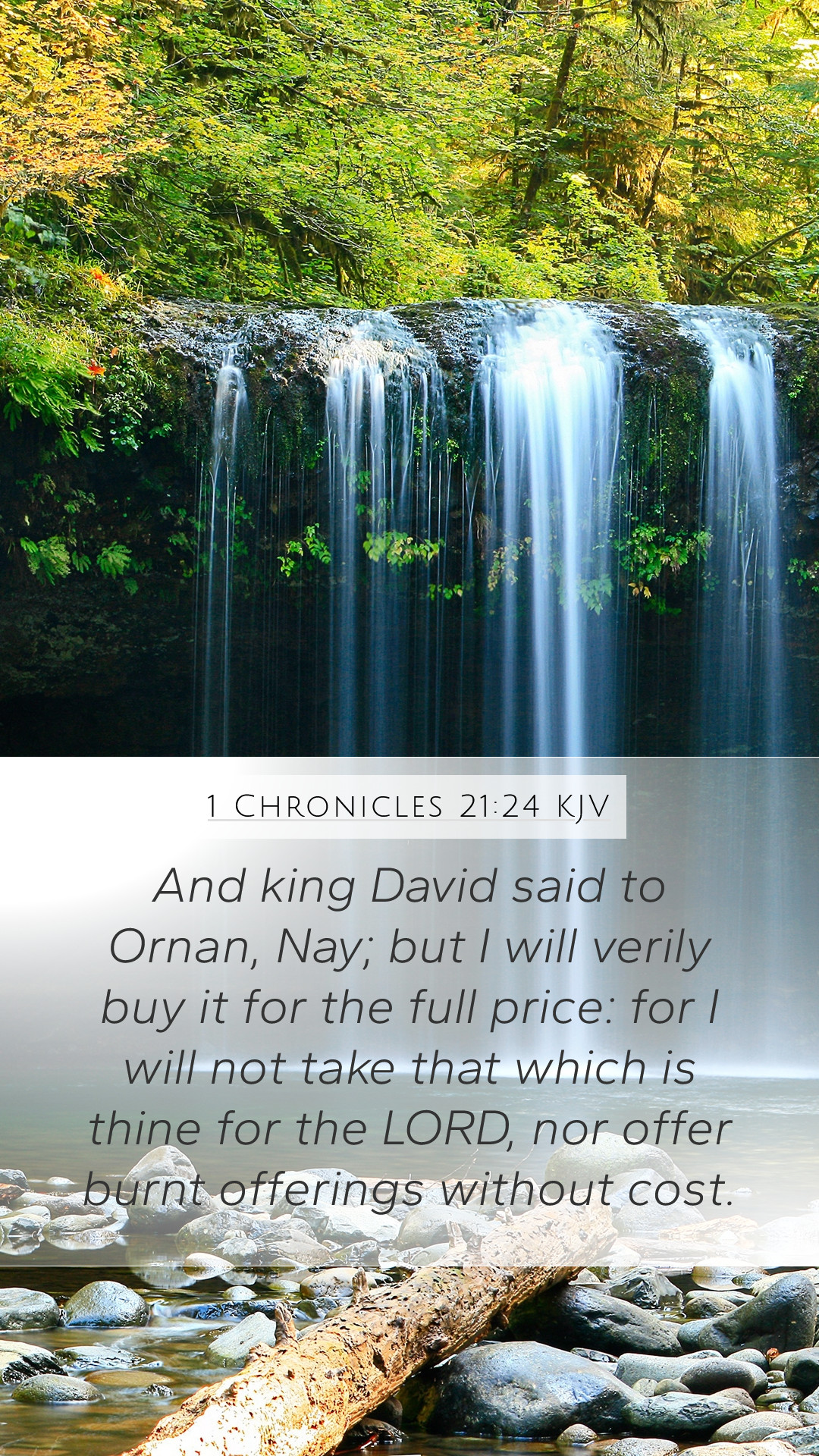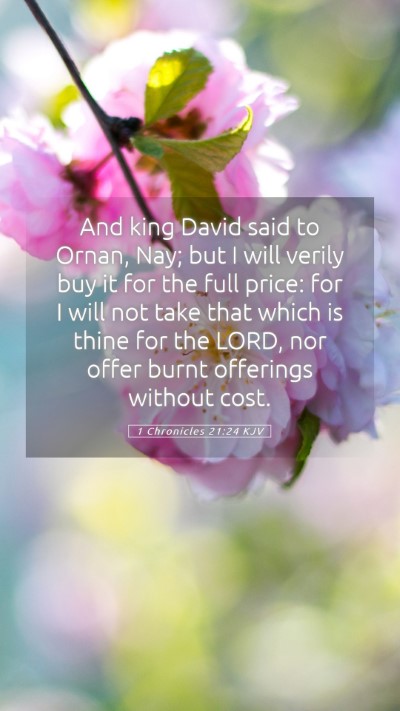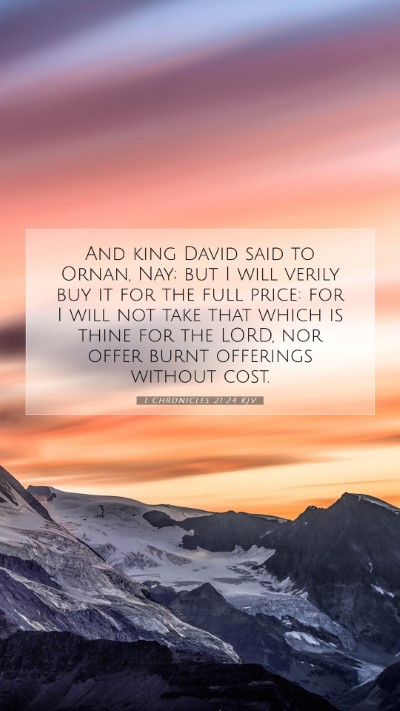Understanding 1 Chronicles 21:24
In 1 Chronicles 21:24, we observe a significant moment in King David's reign concerning the acquisition of the threshing floor of Ornan (Araunah). The verse reads:
"And King David said to Ornan, 'But I will surely buy it for the full price; for I will not take what is yours for the Lord, nor offer burnt offerings that cost me nothing.'"
Background and Context
This verse occurs in a broader narrative where David, following a census of Israel, recognizes his sin resulting in divine punishment. He seeks to atone for his actions by offering sacrifices to God. The context of this scripture involves themes of ownership, sacrifice, and devotion.
Verse Explanation
-
Meaning of the Threshing Floor: The threshing floor symbolizes a place of sacrifice and worship. By choosing to buy this site, David is laying the foundation for the future temple, demonstrating his commitment to fostering a proper worship environment for the Lord.
-
David’s Integrity: David’s insistence to pay full price underscores a profound principle in biblical worship—that offerings to God should reflect genuine sacrifice. This highlights the importance of integrity in our offerings and the relationship we maintain with God.
-
Understanding Sacrifice: David's declaration, "I will not offer burnt offerings that cost me nothing," challenges believers to question the sincerity and cost of their personal sacrifices. True worship must involve a measure of sacrifice.
Commentary Insights
From Matthew Henry:
Henry points out that David's willingness to purchase the land rather than receive it for free illustrates an essential truth about true devotion—sacrifice should not be performed at another's expense. This reflects a heart aligned with God's principles.
From Albert Barnes:
Barnes emphasizes the importance of sacrifice in the worship of God, stating that genuine offerings should come from personal loss. This reinforces the idea that our relationship with God is built not only on faith but also on the willingness to give our best effort and resources.
From Adam Clarke:
Clarke expounds on David's decision as a matter of principle, indicating that he recognized the financial implications of genuine worship. He further illustrates that David intended to honor God in the way he approached sacrifices, establishing a template for future worship of the Jewish people.
Key Themes
-
The Cost of Worship: True worship requires a personal cost, either in time, effort, or resources, reflecting a heartfelt devotion to God.
-
Divine Judgment and Restoration: The context of David’s actions demonstrates the broader theme of acknowledging sin and seeking restoration through heartfelt sacrifice and repentance.
-
Preparation for Future Generations: By securing the land for the altar, David looks ahead, ensuring the next generations have a dedicated space for worship, foreshadowing the future temple.
Bible Cross-References
- 2 Samuel 24:24: Similar account of David's refusal to offer sacrifices that cost him nothing.
- Genesis 22:2: Abraham's test of faith and sacrifice of Isaac parallels the theme of costly offerings.
- Hebrews 13:15-16: The New Testament encouragement of sacrifices of praise and good deeds as acts of worship.
Conclusion
1 Chronicles 21:24 invites believers to reflect on the nature of their own sacrifices and offerings to God. It challenges us to evaluate whether our worship is truly costly or merely convenient. Through understanding this scripture, we equip ourselves with crucial Bible study insights that elevate our personal and communal worship experiences.


